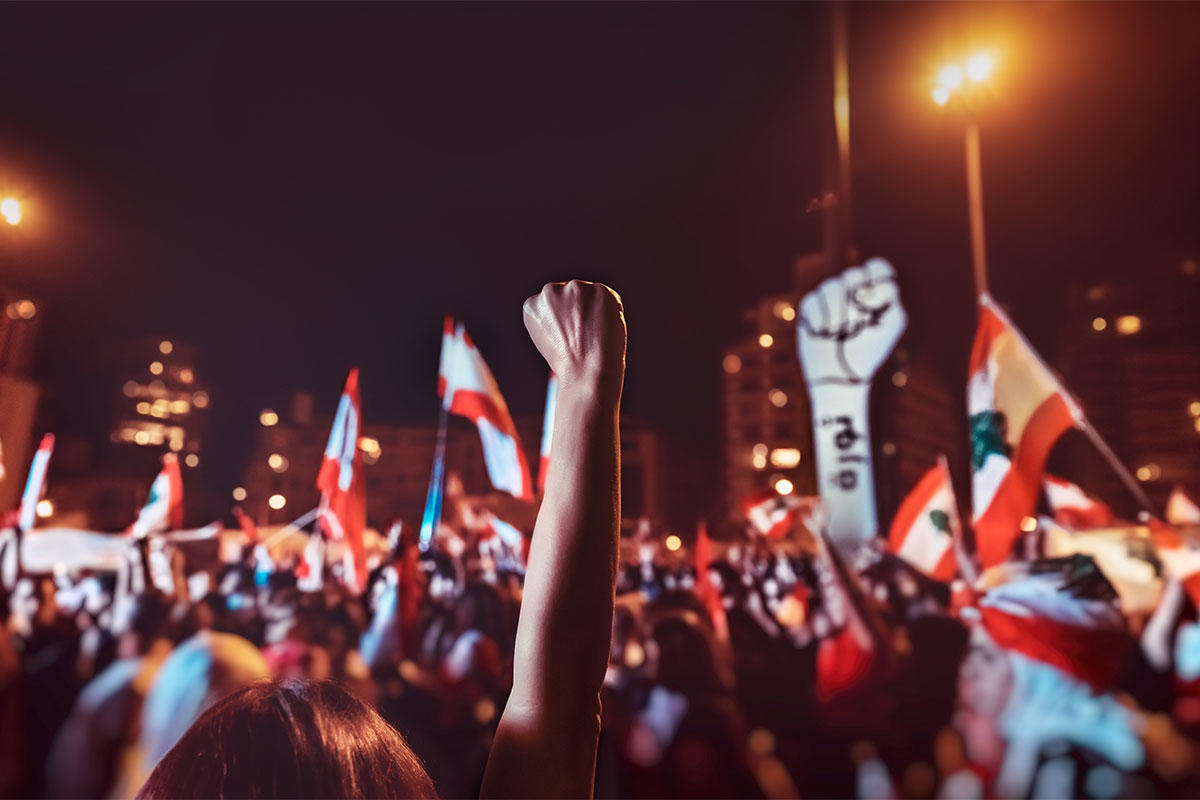ISJCR Secures Major Carnegie Grant for Research
Project will address the concept of resilience and inclusive governance in Lebanon and a number of Arab countries.
The Institute for Social Justice and Conflict Resolution (ISJCR) in LAU’s School of Arts and Sciences has received a $500,000 grant from Carnegie Corporation New York for a research project on resilience and inclusive governance in the Middle East.
The project, in collaboration with LAU New York Headquarters and Academic Center (LAU NY) and the Arab Institute for Women (AiW), will focus on Lebanon, Iraq, and Jordan as primary cases, and on Libya and Yemen as secondary cases.
Resilience is “understood as the ability of societies and individuals to manage shocks, develop robustness and face crises and threats … And all literature written about resilience in the Middle East has been framed in a Western context,” said Principal investigator and ISJCR Director Tamirace Fakhoury.
Dr. Fakhoury, who is associate professor of political science and international affairs, explained: “This project will help build literature that shows how resilience in the Middle East is perceived by scholars, practitioners, activists, teachers and health specialists from the region itself.”
The project will focus on two concepts – resilience and inclusive governance – and how they interconnect.
“Resilience is correlated with more mechanisms that allow the active participation of all citizens,” she said. “It can only be robust when individuals partake in and steer the decisions that govern them.”
This very notion is shaken in the selected countries where issues of trust, governance and resilience are at the heart of national debates. Even more so in Lebanon, as the country plunges into an economic collapse and endures the crippling impact of the Coronavirus pandemic.
Co-principal investigator and Associate Professor of Political Science Bassel Salloukh said the research project aims to “problematize and interrogate” questions pertinent to understanding resilience and whether or not it is always a good thing.
“When we speak about resilience in Lebanon, who’s resilience are we talking about?” he asked. “Is it the sectarian state and its complex clientelist networks? Sectarian communities and sectarian political parties?”
If the answer is yes, he continued, then “is the resilience of these actors something that we want to celebrate?”
“And if the sectarian system is so resilient, then what are the consequences of the current overlapping fiscal and monetary crises on prospects for political change in Lebanon?”
Lebanon is facing overlapping crises that “will probably cost the country at least a lost decade and a whole generation if not more,” he warned. It is immersed in a policy debate as to what kind of Lebanon the people want to see emerge in the next decades, he said.
“Which classes and sectors should pay the greatest price for the mess that we find ourselves in? What kind of political economy do we want to assemble in the process? And whose socioeconomic interests should this political economy serve?”
“These are not technical or technocratic choices. They are deeply political ideological choices, with direct implications for any prospects for political change,” he added.
The study will aim to get answers to such questions from activists, practitioners, grassroot NGOs, health specialists, social workers, and scholars from the region. Online commentaries and thought pieces about the meaning of society, state and individual resilience will help produce new knowledge about the concept. To generate knowledge about resilience and inclusive governance, deliberative methods allowing various stakeholders to meet and discuss complex issues will be adopted, clarified Dr. Fakhoury.
She added that the project will target critical junctures including economic meltdowns, the COVID-19 pandemic and recent protests.
Two LAU experts, LAU NY Executive Director Nadim Shehadi and Myriam Sfeir, director of the AiW, are also joining hands by overseeing their respective tracks.
As an academic institution, LAU can contribute to crucial national debates of the kind. And, as far as Lebanon is concerned, to “the difficult but inescapable choices that will shape the emergence of a new Lebanon, one that will be radically different than the one created 100 years ago,” Dr. Salloukh said.
In 2017, the ISJCR and AiW secured a grant from Carnegie for research on inclusive governance and transnational social movements in the Arab world.
